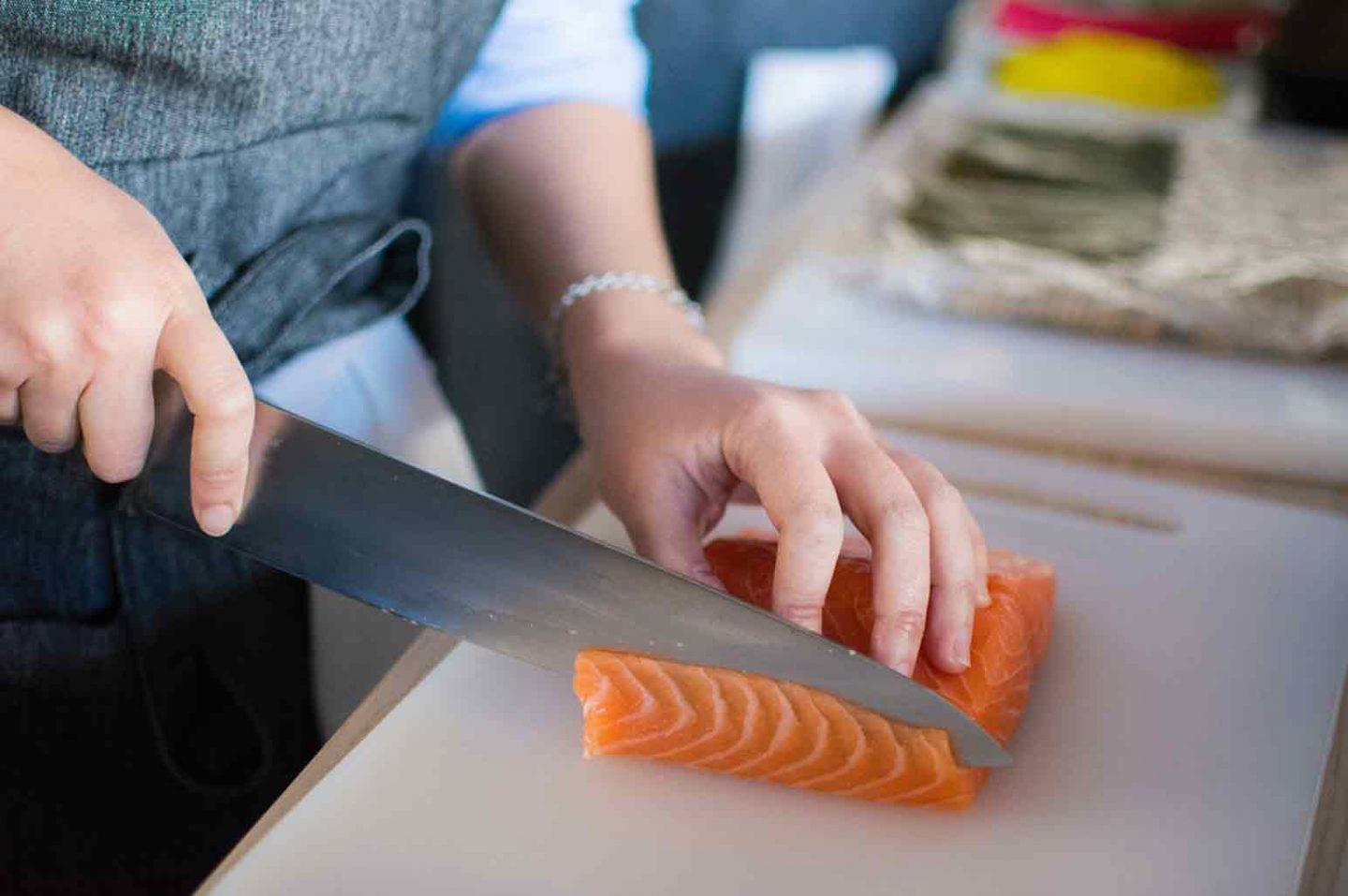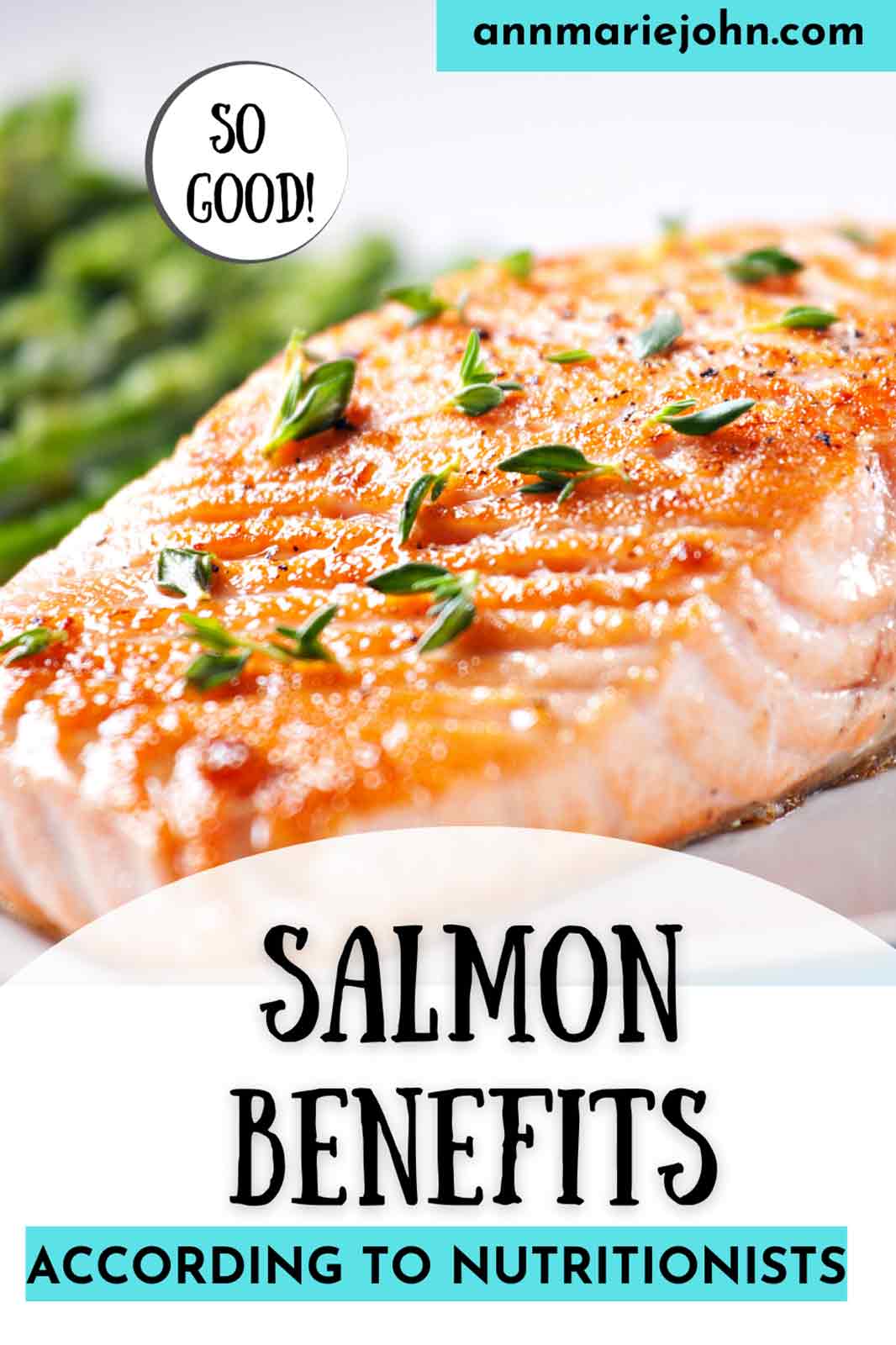
There’s a lot of buzz about super-foods. In reality, no food is going to cure your health problems. On the other hand, eating a healthier diet can improve your health. But what foods are better than your default options? Surprisingly, salmon is high on that list. Here are the biggest salmon benefits according to nutritionists.

It Benefits Your Brain
Salmon is one of the best things you can eat if you’re concerned about brain development or brain health. Omega-3 fatty acids are essential to healthy brain development. That’s why it has been added to baby formula. Yet you can get a full dose of it from a side of salmon. Note that the salmon needs to be safe to eat before you give it to your children. It will reach that point when the internal temp of salmon filets are 145°F or higher. Over-cooked salmon may be dry and flaky, but it will be equally nutritious.
It Is an Ideal Source of Protein
Salmon is high in healthy fats; these are the ones that contain omega-3 fatty acids that benefit your brain. They also contribute to a healthy cardiovascular system. This is in contrast to red meat. Eating that can raise your risk of heart problems. Wild salmon is the healthiest. It is around 85 percent lean and has almost no cholesterol. Furthermore, it doesn’t have as many calories. Salmon contains more water. For example, a 100-gram serving of salmon has 150 calories, while 100 grams of beef has 250 calories.
Do you have diabetes or try to manage your sugar intake? The glycemic index of salmon is zero, because it does not contain any carbohydrates. That is in sharp contrast to soybean based faux meats that are considered a healthy alternative to red meat.

It Is Rich in Essential Minerals
Salmon contains higher than average amounts of potassium, selenium, magnesium, phosphorus, manganese, and copper. And while it is a fish, it is naturally low in sodium. On the other hand, red meat has a higher concentration of iron, calcium, and zinc.
Salmon Has a Lot of Vitamins
Salmon is high in vitamin A, vitamin E and the B vitamins. It is unusual for containing vitamin D. You can’t get that from red meat. The only vitamin in red meat you can’t get in salmon is vitamin K. However, it doesn’t contain vitamin C. Note that you can get this by baking the salmon in lemon juice or adding herbs and vegetables that do contain this essential vitamin.
It Doesn’t Require High-Calorie Sauces to Taste Great
You can find plenty of recipes involving chicken, a low-calorie protein. Unfortunately, many of these recipes call for sugary or fat-laden sauces to make it taste good. Or you get unhealthy side dishes, such as when low-fat beef is served alongside buttered mashed potatoes. In contrast, salmon tastes great on its own. You could eat it by itself. It has a delicate flavor, though this is more pronounced if you eat wild salmon. You could add a little lemon juice and be done. Some add soy sauce or dill, though these are arguably unnecessary. A little butter goes a long way with salmon, if you find it necessary, but you can avoid that if you simply wrap it in foil when you cook it. Or leave the nutrient-rich skin on when you prepare it.

